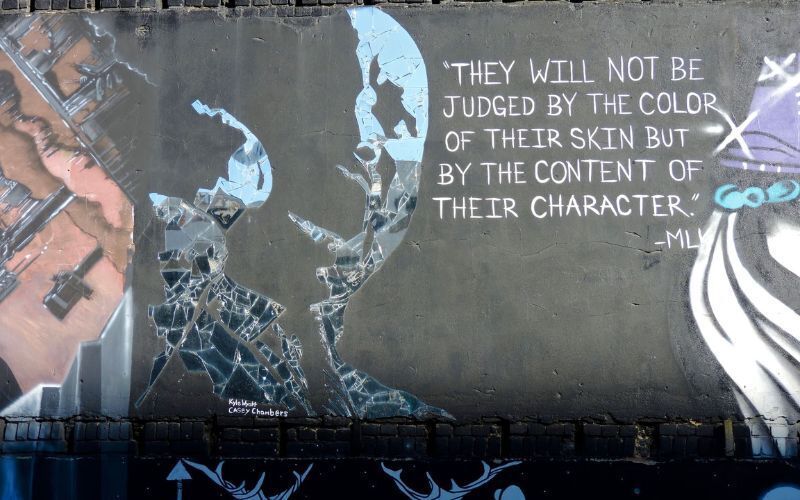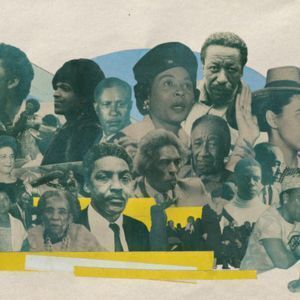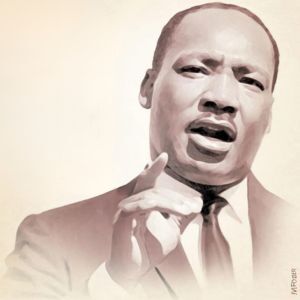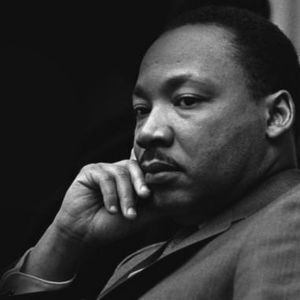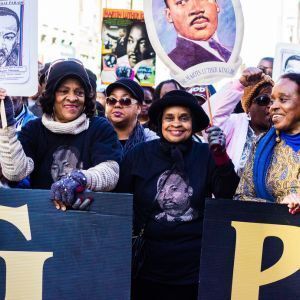Photo by LeeAnn Cline on Unsplash
Martin Luther King Jr. and 40-Days of Peace
In 1967, Martin Luther King, Jr. isolated himself to write his final book, Where Do We Go From Here: Chaos or Community. It would not be published for another ten years. In this salient volume, MLK spoke to his dreams of an America which would explore remedies that would lead to better jobs, just wages, more than adequate health care, homes for all and equal education. King did not intend for his message to be just for the United States, but it was steeped in hope for a global direction—demanding an end to international suffering and the expectation that common humanity would be able to obtain and live the rights expressed in the 1948 United Nations Declaration for Human Rights. Theologian Cornel West notes, in Where Do We Go From Here, King puts forth his “last grand expression of his vision—he put forward his most prophetic challenge to powers that be and his most progress[ive)]program for the wretched of the earth.”
Martin Luther King was a powerhouse for his time and beyond. He is one of the greatest intellectuals in American history—a man of substance and action. He understood how to bridge the depravities of poverty to the wealth of nations and the struggle for freedom to the core of creating a “beloved community.”
During the past several years the Charter for Compassion has participated in the 40 Days of Peace celebrating the extraordinary grassroots, national and global challenges that MLK has charged us to follow. The programs outlined below refer to “The Triple Evils,” addressed in Where Do We Go From Here.
The Triple Evils of POVERTY, RACISM and MILITARISM are forms of violence that exist in a vicious cycle. They are interrelated, all-inclusive, and stand as barriers to our living in the Beloved Community. When we work to remedy one evil, we affect all evils. To work against the Triple Evils, you must develop a nonviolent frame of mind as described in the “Six Principles of Nonviolence” and use the Kingian model for social action outlined in the “Six Steps for Nonviolent Social Change.”
Six Steps for Nonviolent Social Change
- Information Gathering. To understand and articulate an issue, problem or injustice facing a person, community, or institution you must do research
- Education
- Personal Commitment
- Negotiation
- Direct Action
- Reconciliation
Triple Evils
Some contemporary examples of the Triple Evils are listed next to each item:
Poverty – unemployment, homelessness, hunger, trauma, malnutrition, illiteracy, infant mortality, slums…
“There is nothing new about poverty. What is new, however, is that we now have the resources to get rid of it. The time has come for an all-out world war against poverty … The well off and the secure have too often become indifferent and oblivious to the poverty and deprivation in their midst. Ultimately a great nation is a compassionate nation. No individual or nation can be great if it does not have a concern for ‘the least of these.”
Racism – prejudice, apartheid, ethnic conflict, anti-semitism, sexism, colonialism, homophobia, ageism, discrimination against disabled groups, stereotypes…
“Racism is a philosophy based on a contempt for life. It is the arrogant assertion that one race is the center of value and object of devotion, before which other races must kneel in submission. It is the absurd dogma that one race is responsible for all the progress of history and alone can assure the progress of the future. Racism is total estrangement. It separates not only bodies, but minds and spirits. Inevitably it descends to inflicting spiritual and physical homicide upon the out-group.”
Militarism – war, abolishing nuclear weapons, imperialism, domestic violence, rape, terrorism, human trafficking, media violence, drugs, child abuse, violent crime…
“A true revolution of values will lay hands on the world order and say of war - ‘This way of settling differences is not just.’ This way of burning human beings with napalm, of filling our nation’s homes with orphans and widows, of injecting poisonous drugs of hate into the veins of peoples normally humane, of sending men home from dark and bloody battlefields physically handicapped and psychologically deranged, cannot be reconciled with wisdom, justice and love. A nation that continues year after year to spend more money on military defense than on programs of social uplift is approaching spiritual death.”

